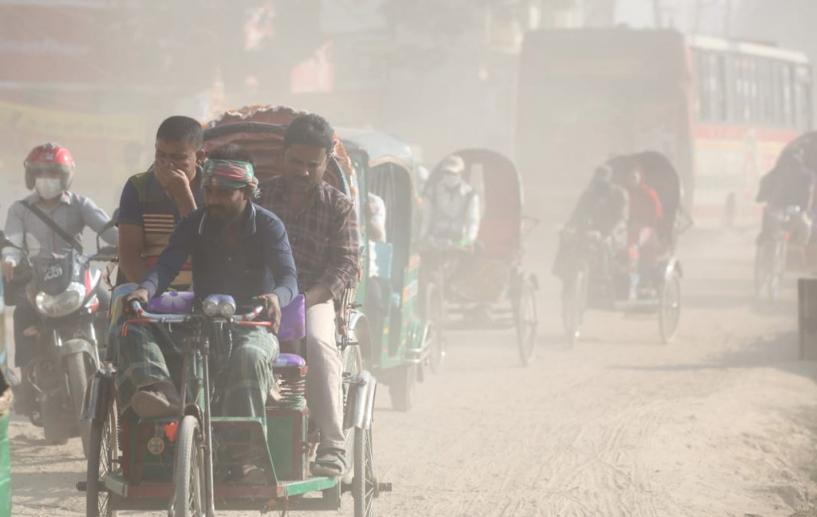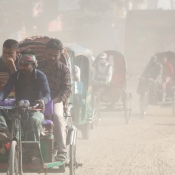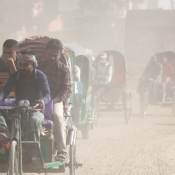WHO: Nearly 99% of world population breathes poor-quality air

Air quality is poorest in eastern Mediterranean and southeast Asia regions.
The WHO says 99% of the global population breathes air that exceeds its air-quality limits and is often rife with particles that can penetrate deep into the lungs, enter the veins and arteries, and cause disease.
The UN health agency, about six months after tightening its guidelines on air quality, on Monday issued an update to its database on air quality that draws on information from cities, towns, and villages across the globe.
Air quality is poorest in eastern Mediterranean and southeast Asia regions, followed by Africa.
The database, which has traditionally considered two types of particulate matter known as PM2.5 and PM10, for the first time has included ground measurements of nitrogen dioxide.
The UN health agency, about six months after tightening its guidelines on air quality, on Monday issued an update to its database on air quality that draws on information from cities, towns, and villages across the globe.
Nitrogen dioxide originates mainly from human-generated burning of fuel, such as through automobile traffic, and is most common in urban areas.
Exposure can bring respiratory diseases like asthma and symptoms like coughing, wheezing and difficulty in breathing, and more hospital and emergency-room admissions, WHO said.
The highest concentrations were found in the eastern Mediterranean region.
Particulate matter has many sources, such as transportation, power plants, agriculture, the burning of waste and industry - as well as from natural sources like desert dust.
The developing world is particularly hit hard - India had high levels of PM10, while China showed high levels of PM2.5, according to the database.
Particulate matter, especially PM2.5, is capable of penetrating deep into the lungs and entering the bloodstream, causing cardiovascular, cerebrovascular (stroke) and respiratory impacts, the UN health agency said.
There is emerging evidence that particulate matter impacts other organs and causes other diseases as well, it added.
Published on: Tuesday, 26 April 2022, 01:21 am ▪ Last update: Tuesday, 26 April 2022, 01:33 am ▪ Total View of this Page: 895










